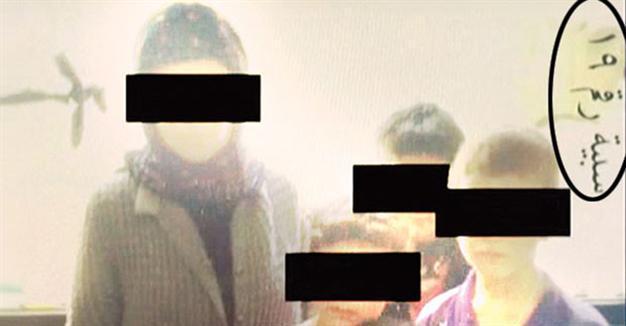Yazidi women trade case closed in two weeks, evidence not examined: Bar
İdris Emen – GAZİANTEP

A case concerning claims that Islamic State of Iraq and the Levant (ISIL) militants “sold” Yazidi women and children, which ended in the acquittal of the suspects in 16 days, has drawn reactions from the bar association in the southeastern province of Gaziantep, which said key evidence in the case had not been examined.
The Gaziantep Bar Association’s application to participate in the case was also turned down, while the translation of thousands of receipts in Arabic, allegedly showing crucial money transfers, was sent to court after the decision to drop the case was taken.
The case ended with the suspects’ acquittal in the second hearing on Jan. 15 with the justification citing a lack of “credible, beyond doubt, and precise evidence.”
The bar association filed a criminal complaint to the Chief Public Prosecutor’s Office, after the footage of Yazidi women kept captive by ISIL being sold like slaves in an office in Gaziantep emerged in November 2015.
After the investigation, police raided the office seen in the video.
Some $370,000, a number of foreign passports, and 1,768 pages of Arabic receipts showing money transfers between Turkey and Syria were seized in the raid.
The receipts showed that just one company transferred funds worth millions of dollars between Syria and Turkey.
Files were claimed on six Syrian suspects who allegedly sold Yazidi women for money on charges of being members of ISIL and violating the law on preventing terrorism financing.
The first hearing of the trial was held on Dec. 31, 2015, when the suspects told the court via a translator that due to the collapse in the banking system in Syria, they brokered between the sides in order for the money transfer between Turkey and Syria to take place.
One of the suspects, identified only as Omar D., denied the accusations of transferring money to ISIL, while the other suspects gave similar testimonies.
The suspects allegedly put photos of the captives on their website with nicknames such as “Slave Number One,” and stated the money they demaded. Then the suspects met with those who wanted to buy the women and the money ISIL demanded was delivered.
Gaziantep Bar Association Human Rights Commission member Mehmet Yalçınkaya harshly criticized the court decision.
“We found out the acquittal decision by chance. The court gave its ruling without examining the documents that the police seized, which could have been counted as evidence,” Yalçınkaya told daily Hürriyet.
”The presentation of a 1,768-page document to the court after the acquittal decision, and the fact that the case was closed in only 16 days, shows that an efficient judgment was not made,” he added.
 A case concerning claims that Islamic State of Iraq and the Levant (ISIL) militants “sold” Yazidi women and children, which ended in the acquittal of the suspects in 16 days, has drawn reactions from the bar association in the southeastern province of Gaziantep, which said key evidence in the case had not been examined.
A case concerning claims that Islamic State of Iraq and the Levant (ISIL) militants “sold” Yazidi women and children, which ended in the acquittal of the suspects in 16 days, has drawn reactions from the bar association in the southeastern province of Gaziantep, which said key evidence in the case had not been examined.